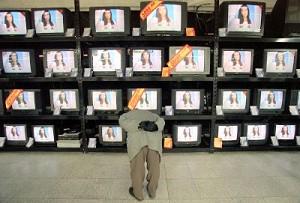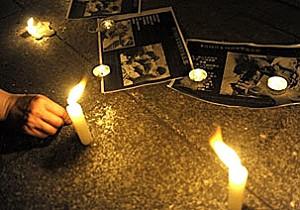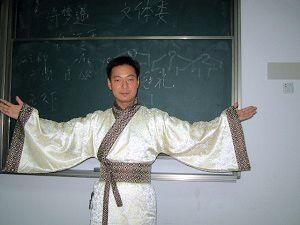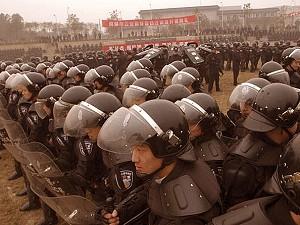The Beijing Bureau of Press and Publication announced a new regulation banning horror/supernatural video products. Some are skeptical, wondering if authorities are attempting to control the general public’s opinion.
Last week the Beijing Bureau of Press and Publication announced a “Notice to investigate horror/supernatural video products” claiming to limit the ill effects of such products in society, to prevent publications containing horror/violence/brutality from being sold through regular channels, and to protect the mental health of minors. The authorities have completed a thorough screening of the published video products in 2006 and 2007. All videos containing banned content were removed from the shelves. For similar products that are about to be published in 2008, producers must immediately stop the production or erase the content.
The horror/supernatural content is defined as using scary-looking ghosts, demons, and monsters, supernatural experiences or imagination, and suspense scenes to reach the effect of horror sensation.
Over the past few years horror and supernatural videos and literature have gained popularity in China. Some research shows that such products can elicit response that can ease pressures from the real world. Some analysts think that the authorities fear people might imitate the horror scenes and hence have introduced the new rule before the Olympics. Author Liu Xiaobo in Beijing said, “I think it has something to do with controlling social stability before the Olympics. Authorities feel that after watching the horror and supernatural stories, people would want to act out what they saw and this is somehow connected to some brutal activities.”
After the Bureau made the announcement, some businessmen believe that the new regulation is an excuse for authorities to screen any or all video products on the market to intensify control over public opinion. An editor in Beijing said, “There is not a comprehensive or clear legal standard (for the search.) It reminds me of the actions that claimed to combat pornography, which was never about pornography”. A high level official from the China Central Propaganda Department said, “The new regulation isn’t targeting TV shows. Our main objective is materialism. Nowadays a majority of the media focuses on making such (horror/supernatural) products. This is not allowed!”
Last year the Bureau announced new rules regulating Internet videos that backfired. Especially when CCTV, Chinese Communist Party’s official TV station, put up an interview of a student saying the Internet was full of pornography and violence. This time the CCTV came out with a similar report after the new regulation came out. A blogger commented that the opinion control wrapped under the official propaganda is the most terrifying.
Mr. Li who used to work in a TV station for many years said that the authorities are extremely panicked about different opinions, “They are scared of everything. They control every ideology that doesn’t fit their profile. A while ago in a meeting about the Olympics, they had made it clear that they'd put out many of these kinds of restrictions before the Games.”




